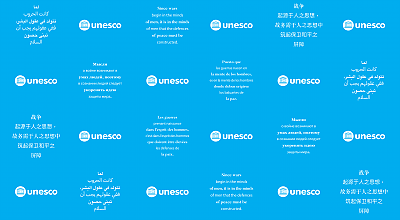
“Blessings of Seven Mothers”: A video documentation of the traditional women’s practice of koshok aituu
In the framework of the 2025 International Day of Intangible Cultural Heritage, the Aigine Cultural Research Center releases the “Blessings of Seven Mothers”: A video documentation of the traditional women’s practice of koshok aituu — ritual lamentation performed by Kyrgyz women lamenters (koshokchu).
The initiative revives this ancient oral tradition to commemorate and mourn the lives of young women who have died as a result of gender-based violence in Kyrgyzstan. Through poetic expression, voice, and collective emotion, the videos transform mourning into a cultural act of remembrance, solidarity, and resistance, showing how intangible heritage continues to speak to the deepest human experiences today.
The initiative seeks to revive, safeguard, and transmit the women’s traditional practice of koshok aituu — the ritual of lamentation — one of the most ancient and profound forms of the intangible cultural heritage of the Kyrgyz people.
Koshok aituu is a poetic and spiritual act in which women express grief, compassion, and empathy through ritualized singing and oral improvisation. Traditionally performed during funerals or moments of collective sorrow, it provided a way for communities to process loss and restore inner and social balance. Beyond its ceremonial function, the practice carried a deep emotional and philosophical significance: it helped people articulate the inexpressible and reestablish harmony between the human and natural worlds.
In recent decades, this form of oral heritage has come to the brink of disappearance. Religious prohibitions and shifting social norms have led to the stigmatization of public expressions of grief, and koshok aituu has nearly vanished from public life. Yet, this tradition embodies a powerful potential for collective healing, empathy, and reflection — a capacity urgently needed in today’s society.
The initiative “Blessings of Seven Mothers” reimagines koshok aituu in a contemporary context, linking it to one of the most pressing social issues in Kyrgyzstan — violence against women. Within this initiative, traditional women lamenters (koshokchu) create and perform seven new koshoks, each dedicated to the memory of a real woman whose life was taken by domestic or gender-based violence. These performances transform the act of lamentation into an artistic and moral statement — a voice of compassion, remembrance, and solidarity that transcends grief and calls for awareness and change.
Each koshok follows the traditional poetic structure but carries modern meaning, weaving together ancient formulas with contemporary narratives. Through performance before the camera, the ritual becomes a form of social testimony and cultural resistance. The resulting audiovisual materials document these living expressions and are disseminated through social media and national broadcasting platforms, opening new spaces for dialogue about women’s voices, dignity, and the value of intangible heritage in modern life.
This initiative demonstrates that living heritage is not a static remnant of the past but a dynamic force capable of responding to current human experiences. By restoring koshok aituu to its rightful place as a communal voice that speaks of pain, resilience, and moral courage, the initiative reveals how traditional cultural forms can foster healing and empower collective conscience.
Implemented by the Aigine Cultural Research Center, the initiative brings together traditional practitioners, researchers, and artists. It combines community engagement with academic and artistic documentation, reinforcing the role of women as carriers, interpreters, and protectors of Kyrgyz intangible heritage.
Watch the video
Text as provided by the organiser(s).